Where we make our stand
Call us expatriates. Call us migrants. Just don’t call us bored. A few days on the southeast coast of Korea.
I’ve just finished work and I’m on the commuter rail north out of Seoul to my home in the suburbs, thinking about a recent trip to South Korea’s second-largest city and my favorite place in this country: the port city of Busan.
I first went to that city in 2007, on a late bus from Jeonju. I stayed up wandering the side streets and back alleys near the harbor before I took the boat to Fukuoka, Japan, in the morning. Back then Busan still seemed rowdy and wild — a seafarer’s city with Russian sailors and a district with women of the night sitting on stools behind tall pink windows. It felt provincial and rough.
Today the city has everything. On the Haeundae Beach promenade you can find craft beer and Spanish tapas under the backdrop of the 101-story steel and glass LCT tower (and two 85-story buildings next to it). I’m told the best nightlife is in Gwangali, where couples stroll in baggy black jeans and white New Balance sneakers as the lights on the bridge change from green to purple to red and the party cruise boats shoot fireworks off the back.
Song Jeong, where we stayed, is more laid-back. The area has been branded as a surf town. There are surf shops with racks of beginner boards and sidewalk art of guys getting barreled. Out in the water, longboarders work hard to catch the small waves. The vibe is sub-tropical — everyone in wetsuits. I had strapped an 8’6” foamy I bought off Karrot market for $50 to the top of the Mohave and paddled out with it a few times. Good practice, if not exactly the peeling reef break of Uluwatu.
I was moving down the break for something rideable when I came upon a guy giving surf lessons. He was standing in the chest-deep water helping two women catch waves. He smiled and bowed.
“Can you give me a push, too?” I said.
“Where from?” he asked.
“Miguk.”
“Vacation?”
“I live in Seoul.”
“How about Song Jeong?”
“I’m having a good day.”
“Good wave. Nice day. You live on what base?”
“Not military.”
His students came back to the lineup speaking French.
“America surfer,” he said to them. I paddled like hell but the wave was mush.
This was my 45th birthday vacation trip, and we split time in that little town and with Nammin’s family, who are living temporarily near the beach while her brother-in-law works on a petrochemical plant for Hyundai.
We ate our fill of excellent local food — haemul kalguksu (seafood noodle soup), twaegi gukbap (pork and rice soup) — but one standout meal was at Tejano in Haeundae, where the pitmaster, Jeff Kang, runs a Texas barbecue and Mexican restaurant. The birria tacos, ribs, and carnitas were on par with much of what I’ve had in the States. He brought us another round of palomas and asked how we liked it. “You know how hard it is to find food like this over here,” I said. “And of this quality.” Authentic food an ocean away from where it originated is a rare and good thing.
On the days when it was too gusty for the beach — we brought the Great Plains spring wind with us — we went all over the city to hit the main sights.
At Gamcheon Culture Village, about as blatant of a tourist trap as one would find anywhere, we found very little culture and a whole lot of commerce. There was enough demand from Chinese visitors that the trinket shops had signs written in Chinese and the workers tried to speak to Nammin in Mandarin. People were queued up in a cordoned-off line to take photos with statues of Le Petit Prince, and quotes from the French story were painted on the walls of the multicolored houses. A busload of American soldiers deployed to conquer the streets with bottles of beer and soju in hand, looking barely old enough to drink by the state of their downy mustaches. The place is sometimes called the Machu Picchu or Santorini of Korea. That’s a marketing slogan too far for this guy.
I was templed out years ago — living in Asia for any stretch of time will do that to you — but Haedong Yonggungsa had the added novelty of being built along the cliffside. The colors were the same you’d see anywhere. Same lanterns strung in primary colors for Buddha’s birthday. Same turquoise and red paint. The only difference was the marine locale, which did add slightly more interest. Jia bowed to the large golden Buddha and we went on our way.
The best part of any trip is the people. Back at Song Jeong the next day, with my good friend B. and his wife, friends we’ve known for many years, we each had a family and were on a beach seven thousand miles from Nebraska. It was a “look at us — how did this happen?” kind of feeling. B. and his wife had their baby about six months ago. They were in that time of early parenting when it all feels so difficult. Especially to have kids in our 40s, once we’ve become set in our ways. Selfishly, I love to see them doing the family life. My buddy is American, from a farm like me, and his wife is from Busan. Not only are they also doing the international parenting thing, but they have a mixed-race daughter. We’re lucky.
As the afternoon warmed, the beach again got too windy. Blowing sand is bad for changing diapers. We went to a coffeeshop with the same name as their daughter. I thought about how good it felt to be sharing this experience with these friends. In a lot of ways, our early experience as parents was a lonely one. We had Jia during covid. We couldn’t have any visitors at the hospital. After that we stayed home with her and for many weeks rarely had friends or family around. Even if the global pandemic had not happened, we chose to wait to have a child until we thought we were ready, which meant that by the time we had her most of our friends either had kids, couldn’t, or decided they wouldn’t. So to sit there with these people whom we might have more in common with than anyone … pure joy. Jia took an immediate liking to their daughter. We started scheming about ways to live closer, to unite the clans as much as possible.
On a rainy afternoon, we drove to the two international schools in the city. Both of them have good outdoor spaces and appeared to be well taken care of. Our decisions about where to live are now largely influenced by Jia’s education and how to give her a happy life and the greatest chance at succeeding. I also want her to grow up spending as much time outdoors as possible, and proximity to the beach would make that easier. This also might all be a dream. We might stay close to Seoul for as long as the jobs demand, like so many other people here.
Later that week, B. and I met up for a dinner of grilled pork — ogyeopsal and moksal — and local soju at a restaurant with large open windows overlooking the ocean. Each table had a grill built into one end. The meal came with bowls of different kimchi and vegetables. B. poured a shot and said, “I remember sitting in my hot tub in Silverthorne, Colorado, when you were first going to Korea, passing through in 2006, thinking ‘I’d like to do that someday, but I probably won’t.’”
Now he teaches English at a university on an island and has four months off each year, a big chunk of which he spends in the mountains and on the islands of Thailand, and he has a beautiful, healthy little girl.
“Man, had I not come over then I probably would have stayed at the newspaper until it dissolved then ended up ranching or something,” I said.
“And I’d be in sales.”
We took another shot of soju with the grilled pork and looked out over the East Sea.
“Now I guess this is where we make our stand,” B. said.
He told me about the treatment his wife got in the hospital during the birth of their daughter, how she stayed there for weeks before the baby came and for days after. I told him about how the hospital in Colorado kicked us out as soon as they could despite our newborn girl’s jaundice. How they delivered what was essentially a baby-size tanning bed to our house that we had to keep her in for 72 hours. Nammin and I took turns lying next to her on the floor, checking all the time that the flimsy eye-coverings they’d given us weren’t slipping off and burning her newborn eyes. We did that all by ourselves. We compared how much we each had to pay to have our children, and the difference was so hard to square that we ordered another bottle of soju.
At Galmegi Brewing, one of the country’s older craft beer bars, we ordered IPAs and buffalo wings. We could have been back in Colorado if not for the monsoon-like rain creating pools of reflected neon light from the street signs. Colorado if not for the umbrellas and the delivery motorbikes and the men smoking under the eaves of the convenience stores.
“I stopped using the expatlife hashtag on my Instagram posts,” B. was saying. “One of my friends, this woman I know, kept giving me shit about it.”
In the age of identity politics and a raging debate about immigration, it’s viewed as insensitive to imply that you’re from a country where you can go live abroad for a few years, even a decade or two, then easily return home. The word “expat” used to mean someone living abroad having a great time with their fellow expatriates, drinking and going to parties in exotic places like Paris or Cairo or Havana. Now some people don’t like that word. They want you to call yourself a migrant, even if you’re not immigrating and intend one day to go home. Just because you’ve left a country with a higher GDP doesn’t mean you get to use your own terms, they say. No different than the people who leave poorer countries to move to places like Europe or the United States.
A lot of us want to believe we can find a place that arranges us in a way that gives us meaning and the truest sense of ourselves. We like the idea of men and women of a certain age going out in the world to have more adventures, getting paid well to live among another culture for a while. But this life doesn’t come without its caveats. After you’ve lived outside your country, you might try to go back and your idea of home becomes something other than the house where you were raised. The town you grew up in doesn’t mean what it once did. You fall in love with someone from another country and start a family and the idea of home is wherever your family is at that moment in time. It could happen to you, or someone like you.
You might like the second country better for many reasons. It’s safer. It has universal health care. There’s a general sense that the society cares for its people. Your money goes further. The food is better, or at least more interesting. And once you decide to stay then you’ve started the process of expatriation. Become a permanent resident or even a citizen and it’s immigration.
This sounds crazy to people raised on the idea that their ancestors suffered to build lives in another country so the second, third, fourth generations might one day have it better. Those ancestors came from more difficult places or worse circumstances, and to make a life somewhere else, after everything they tried to give you, dishonors their sacrifice. But my American ancestors couldn’t have predicted the country would end up this way. They didn’t anticipate “trickle down” economics, or truly predatory health-care practices. The childcare industrial complex. The housing crisis. School shootings.
Then there are those looking to have that expat lifestyle but who don’t want to commit to just one country, who don’t want to immigrate, and are choosing an even more indolent path. Many of the popular beach spots on the continent — Bali, Thailand, other parts of Southeast Asia, even, I’m told, parts of South Korea — are thick with people who call themselves digital nomads. These are not immigrants and they’re not exactly expatriates — they’re on tourist visas, moving around with a backpack and a laptop hoping to keep their email job long enough to pay their AirBnb rent. Better than trying to stay in a home country with an impossible cost of living and little hope for building equity in anything. No matter that this means giving up real-life community and, ultimately, if they stay away long enough, connection to family.
The cost of living killed U.S. Bohemia a long time ago. Everyone knows no artist can afford New York, Los Angeles, or San Francisco without a good day job, well-paid spouse, or a trust fund. But no artist can afford America as a whole without those supporting factors. How existentially dreadful to try to focus on creating something when you live in a country where, even with health insurance, getting sick can bankrupt you.
We like to think it was never quite this bad, and that might be right, but artists have been moving to other, cheaper countries since forever. We all love the idea of a city where you can afford to have the time to work and make your name. A long time ago, I moved to Portland, Oregon, for a year when it was still sort of cheap but god the months without sun. Brooklyn wasn’t too bad if you didn’t mind living in a three-story brownstone split into eight apartments in a part of the city that didn’t want you there. I visited Paris and was offered a spot sleeping on the bookshelves at that famous bookstore on the Seine. But somehow I always came back to Korea.
Seoul was never, and has never been, Paris post-WWI. It’s not that cheap and the language is much more difficult to learn. They’re also pretty strict about the visa situation here. And aside from a few media jobs and people who work for international companies, most of the Bohemian foreigners teach English, and that industry is not what it was even a dozen years ago. The roman a clef opportunities are slim.
When I last lived here, in 2013, the city had a moment where it felt like it was truly a place capturing the zeitgeist of international life — at the leading edge of fashion, music, nightlife, and just overall style. Psy would play free concerts in front of City Hall to thousands of people, and “opp, opp, opp, oppa Gangnam Style” traveled the world. All the DJs wanted to play the clubs. I met my wife at Glam when it was a perfect bar, full of beautiful, interesting people, before the money found it and bought up all the tables every night.
A place never stays at the leading edge of relevancy for long. There was covid, then the Halloween crowd crush, and now it feels like the world shifted its focus. The young ones are doing visa runs every 90 days so they can stay in Malaysia or Indonesia and work their internet jobs.
Then it’s no wonder that immigrant narratives are more important than the great expat novel of the 21st century. Take Nazli Koca’s “The Applicant,” about a woman in her 20s from Turkey living in Germany and working as a cleaning woman at a hostel. She barely has any money, does hard drugs at Berlin clubs, and has no real love interest or romance for much of the story. This is a struggle, not an adventure. It’s better this way. We don’t need novels to romanticize this life — that’s what Instagram is for. Writers aren’t influencers. We can leave that to those with the phones, apps, ring lights and filters. Books were always supposed to be deeper than that.
I’ve just begun my seventh year in South Korea. This life has many amazing rewards, but it isn’t that glamorous. The novelty wore off many crowded humid summers ago. Air travel ain’t what it used to be, and international flights aren’t any fancier than domestic, they’re just longer. No one should be scared away from trying this life, but understand the complexity and difficulty that comes with leaving your culture, your people, your country behind — something I did not fully understand when I first began this undertaking. You never know if you’ll fall in love with that country, or someone in it. You never know if you’ll fall out of love with your own country. It could happen to you, or someone like you.
You could find yourself on a crowded subway car after a day of work where you learned the breaking news team you’re on won a Pulitzer Prize, and you’re on the train home to your wife and daughter, who has become bilingual in less than a year and has learned to bow to her elders and loves to eat rice and seaweed soup and understands parts of this culture better than you ever will. That’s what you did all of this for. At least this way you’re not bored.

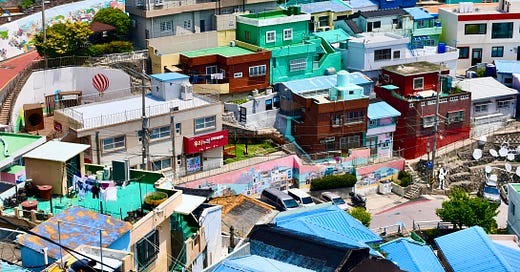



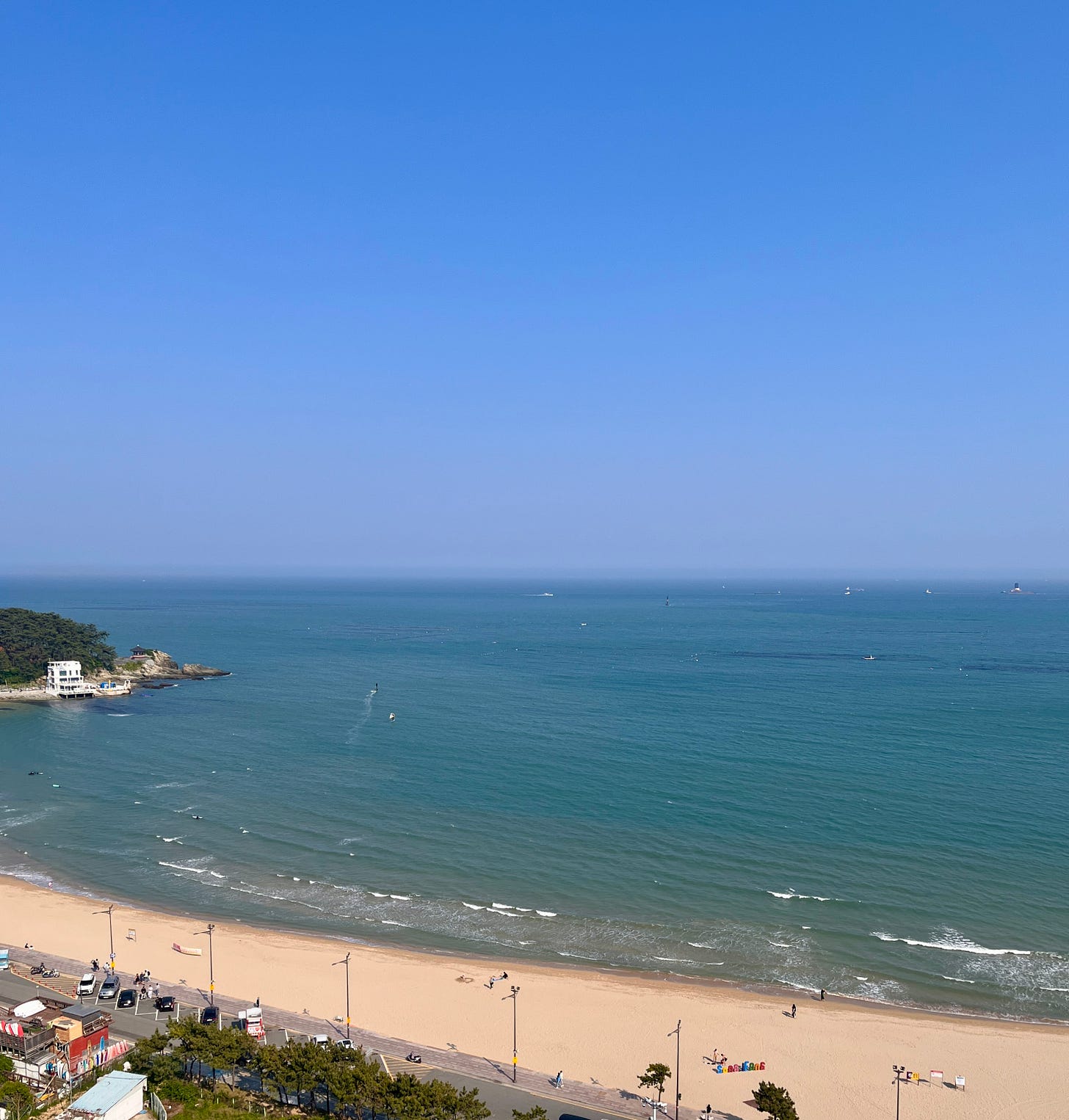
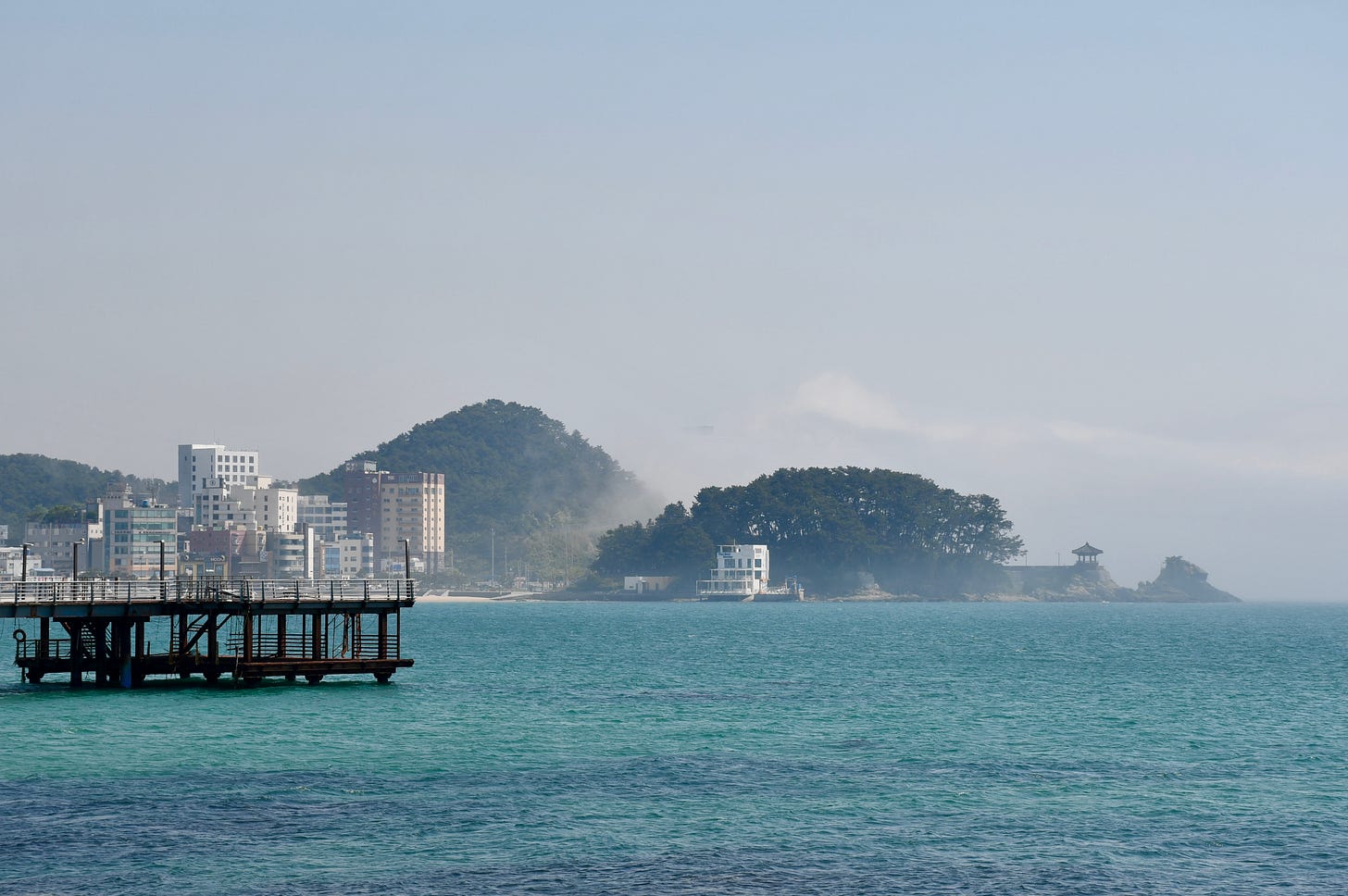
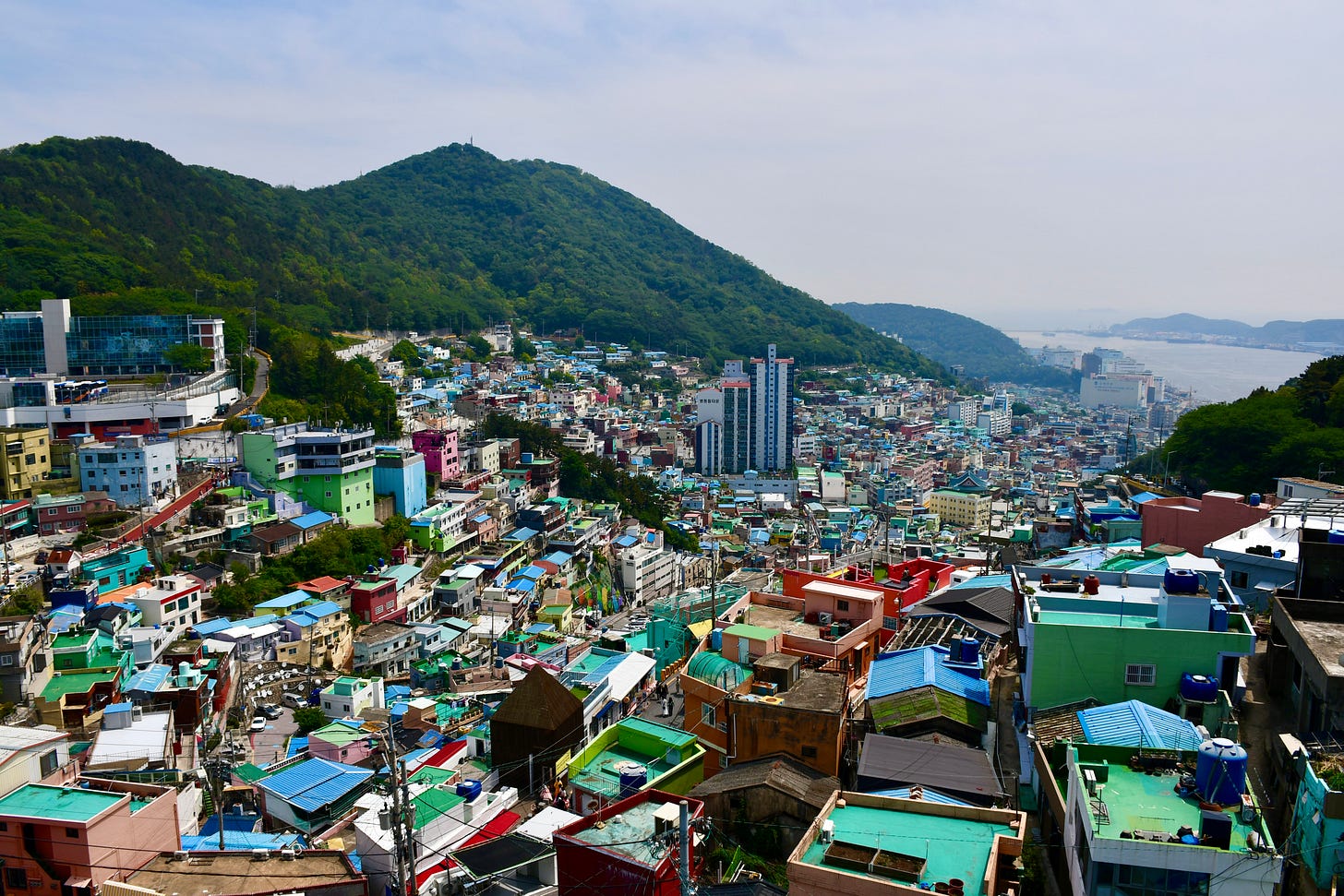
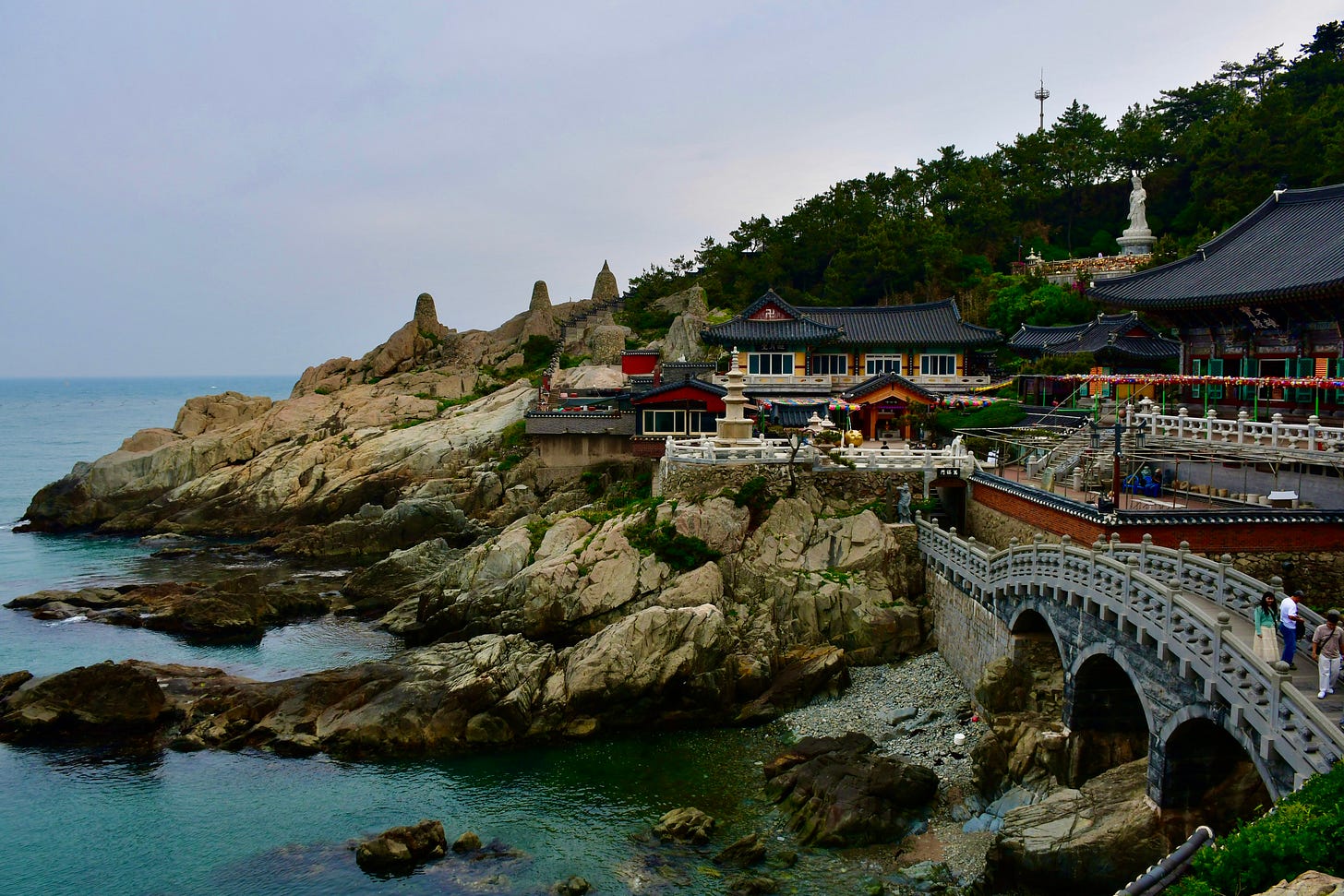
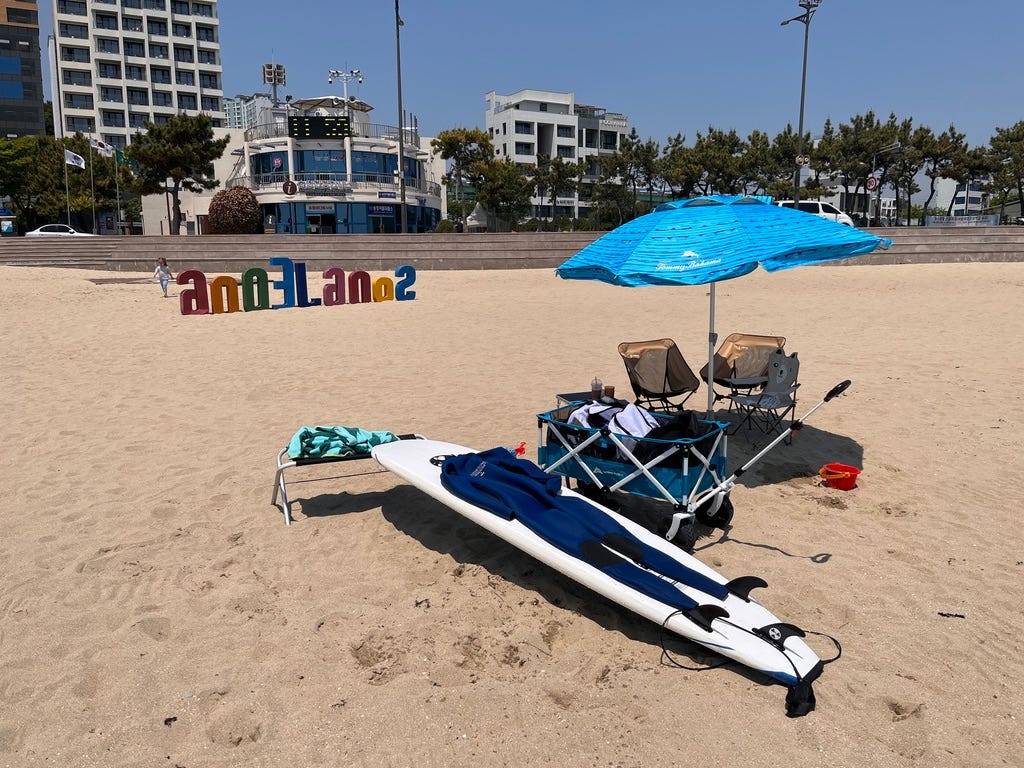
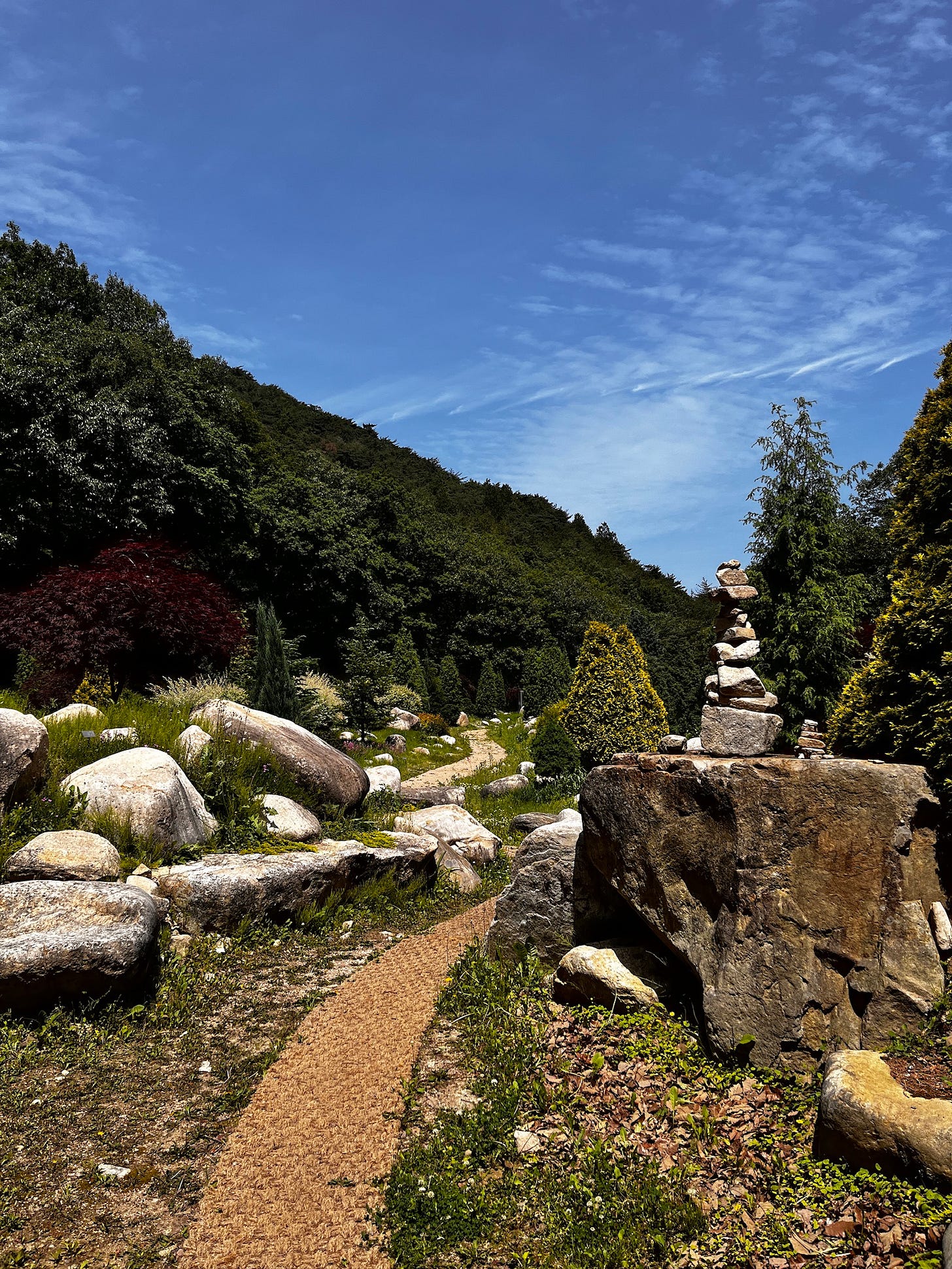
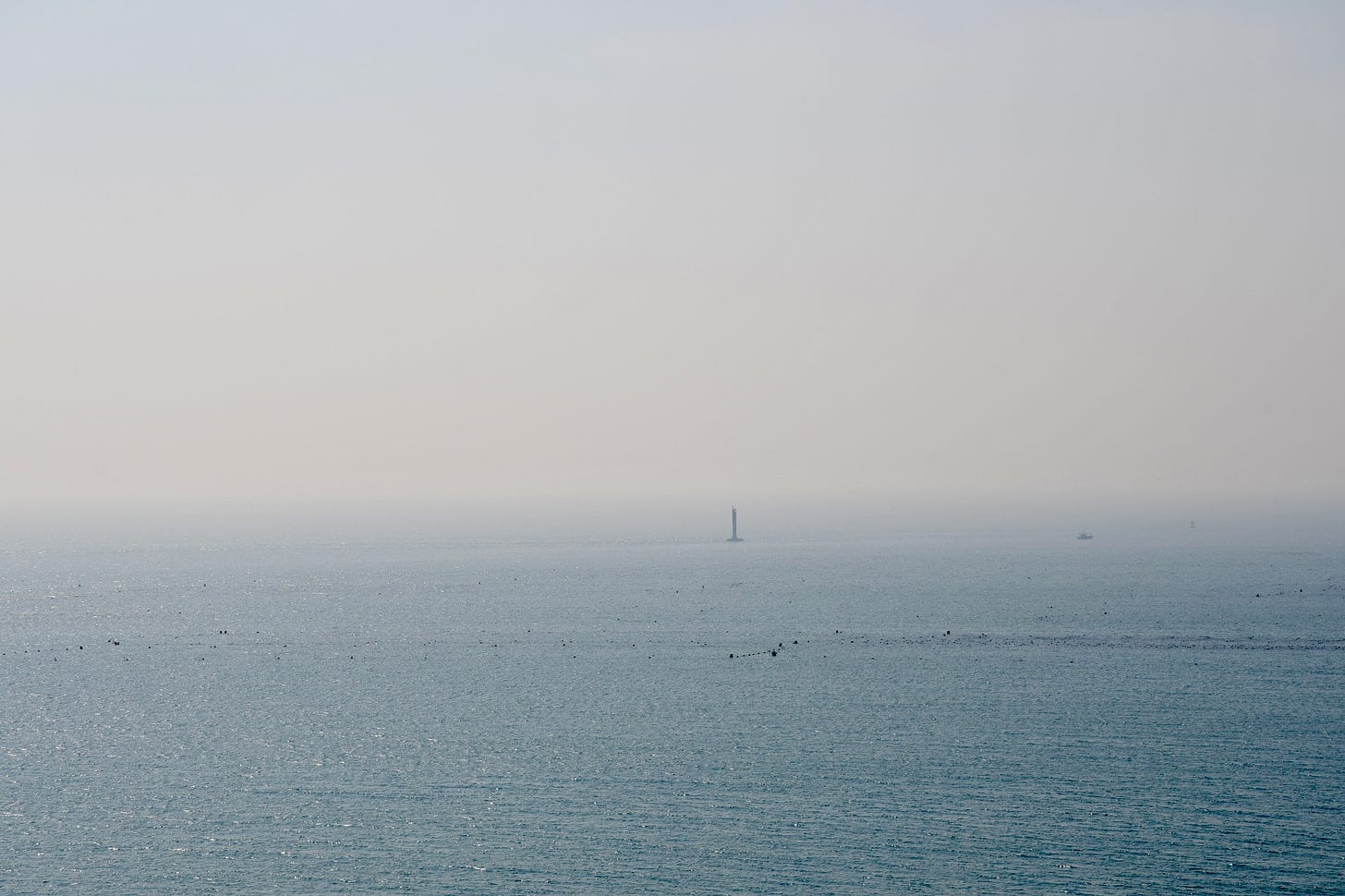
Love this. To let go the expat hashtag...this feels like a blessing. 'Not bored' is the best summation I got, too. Not always enough, or not ever. But most days it works just fine.